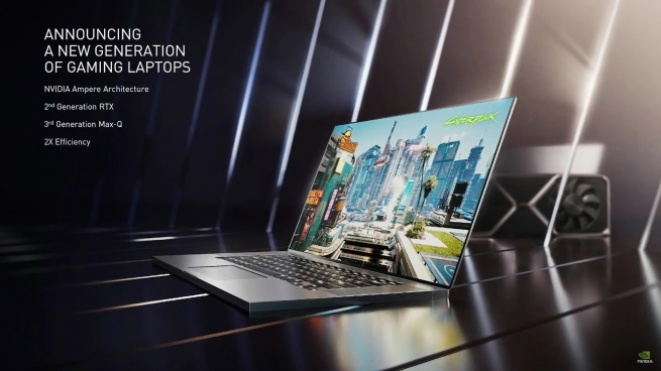7 Common Reasons Why Windows Freezes
No one has fun when a computer becomes non-responsive. Even if you don’t lose the job you’ve been doing, waiting for the app you have open to become responsive can be frustrating and pretty much reduce productivity. Worst of all, whenever we are in a hurry and need to do something quickly, the computer becomes slow.
The problem with situations like this is that the PC doesn't show an error message or eject a blue error screen. It simply “lets” you wait until the computer recovers or until you press the PC reset button. There are a few common ones. The reasons why this is happening, and we will see below what the reasons are and whether there is any solution for them.
1) Lack of resources
One of the main reasons why Windows becomes unresponsive and why it "stuck" is the lack of computer resources. The two components that often cause bottlenecks in computer performance are RAM and CPU. Your computer saves everything you do in RAM. There are also running applications. If this data takes up all the memory, the computer starts saving the new data as a "page" file on disk.
However, there are often downtimes, and the computer "stuck".
If you have an SSD and good (newer) components, then you will be less likely in these situations. But if you have an HDD, then you know what we’re talking about.
The same thing is to the CPU.
When it runs at 80-90 or more percent, it’s only a matter of seconds before the computer jams. There is no solution here. You can increase the RAM, while you cannot increase the CPU. Eventually, replace it with a newer and faster one, but it can be a relatively expensive upgrade.
2) Hardware incompatibility
If a piece of your hardware is not fully compatible with the version of Windows you are using, you may be causing operating system stability issues. Typically, hardware problems cause Windows to crash and display blue screens because they have no other option. An error has occurred and they do not know how to react to it. However, sometimes, if they do not crash, it manifests itself so that the computer becomes non-responsive, ie. "Freezes".
When this situation occurs, try to remember if you have connected any new piece of hardware to the computer. It can be a printer, mouse, keyboard, USB stick, or some other external device. If so, try to run it out and see what happens.
Also, if you have a device that is very old, try replacing it with a newer one and see if the computer will still freeze or not. We know it’s not cheap, at least not always, but sometimes it’s the only solution.
3) Problems with drivers
Even if your incompatible hardware isn't working big problems right now, it could be a bad driver. In case you didn't know, a driver is a small piece of software that connects your software and hardware, that is, gives Interface to Windows so that they can manage the hardware properly.
Generic Microsoft drivers can also be used for basic devices such as mice and keyboards. The problem comes with more expensive peripherals that require, say, their specific drivers. Now, if you are installing old drivers or some that are incompatible with the version of Windows you are using, there may be a problem.
A general rule is - "do not touch while everything is working well". If it doesn’t work, then reinstall the drivers and see what you can do with them.
Generic Microsoft drivers can also be used for basic devices such as mice and keyboards. The problem comes with more expensive peripherals that require, say, their specific drivers. Now, if you are installing old drivers or some that are incompatible with the version of Windows you are using, there may be a problem.
A general rule is - "do not touch while everything is working well". If it doesn’t work, then reinstall the drivers and see what you can do with them.
4) Problems with the Windows Registry
(Windows) The registry is a database where Windows keeps a bunch of information they need. Mostly it is information in the system and various configurations. When you install or remove an application, edit settings, or change, in the end, the Registry itself, Windows keeps those things here.
Most of the time, the Registry works quite great and you don’t have to touch it. We recommend that you avoid those applications that clean your computer, so you can immediately "clean" the Registry. At best, such tools are useless, and at worst - they can be dangerous.
If your computer reports errors or freezes due to the Registry, there is very likely no cure for it. That is, there is - reinstallation of the OS. Sometimes it happens by accident (something is accidentally deleted or the data is corrupted), sometimes the "cleaners" of the Registry delete something wrong, and sometimes the malware destroys the Registry because it was its intention.
Most of the time, the Registry works quite great and you don’t have to touch it. We recommend that you avoid those applications that clean your computer, so you can immediately "clean" the Registry. At best, such tools are useless, and at worst - they can be dangerous.
If your computer reports errors or freezes due to the Registry, there is very likely no cure for it. That is, there is - reinstallation of the OS. Sometimes it happens by accident (something is accidentally deleted or the data is corrupted), sometimes the "cleaners" of the Registry delete something wrong, and sometimes the malware destroys the Registry because it was its intention.
5) Malware of any kind
Malware is a name that covers - viruses, spyware, worms, trojans, all types and forms of injection… and anything that can harm your operating system. Malicious code on your computer can be the reason why your computer freezes and programs become unresponsive. The problem is that malware and various rootkits can take a lot of computer resources and then you have little left for your tasks.
That is why you must scan your computer more often and see if you have any malware or other "parasites" on your computer and that you remove them as soon as possible. Malwarebytes (free) is a great choice if you ask me.
That is why you must scan your computer more often and see if you have any malware or other "parasites" on your computer and that you remove them as soon as possible. Malwarebytes (free) is a great choice if you ask me.
6) Launch multiple AV applications simultaneously
Windows 10 comes with relatively good AV software called “Windows Defender”. It is an AV program that is good enough for most users. It’s not the best, it’s not bad, and it’s free. However, some still want a little better protection, so they install an additional AV program, which can result in performance problems.If you have two of these programs that scan your computer, there can often be a conflict, which can lead to the computer freezing or sometimes resetting the system due to an error.
Don't have more applications like this running in the background and let them constantly scan your computer in "real-time".
7) Application errors
Sometimes bad software can cause us problems. It could be an old app that isn't fully compatible with the Windows we use, and it could be a bad Chrome extension. You may notice that your computer is always unresponsive when you have a particular application turned on. If this happens to you in Chrome, for example, try disabling ALL extensions and see.
If that doesn’t happen to you anymore, then it’s because of the extension. The same thing is with the other software you use. Try narrowing the selection to a couple of apps and then updating them to the latest versions.
If that doesn’t help either, maybe it’s time to take some alternative program. If, say, GIMP creates a problem for you, you can always replace it with, say, paint.Net or a similar application.
If that doesn’t help either, maybe it’s time to take some alternative program. If, say, GIMP creates a problem for you, you can always replace it with, say, paint.Net or a similar application.
Conclusion
There is a good chance that your computer will freeze (Be unresponsive) for one of these reasons. Most of these problems have to be solved one way or another. You are neither the first nor the last to have these problems. Is it frustrating? Yes, but that's another reason to try to solve this problem.
Once you fix it, you'll be able to use your computer again without any problems and you won't have to think about whether it will freeze or not. In the worst case, you can always reset Windows 10 to factory settings and "start over."













